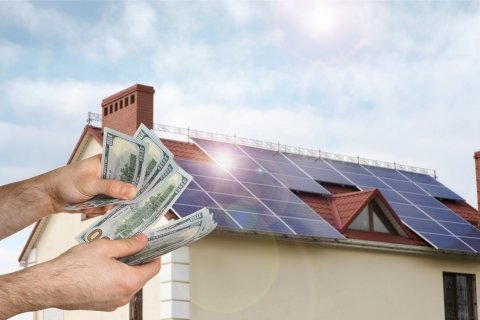The topic of solar energy for residential use is hot. In the last few years, the amount of solar connected to the electric grid has increased exponentially. There are nearly 4 million households in America that have solar power.
This renewable energy source makes the electric grid more reliable and helps solar homeowners save money while increasing the value of their homes. Energy Saver is excited to share five benefits of residential solar.
Benefit 1: Solar panels have become more affordable
With the extension to the federal residential tax credit, residential solar is now more affordable than ever. A 30% tax credit can be claimed by taxpayers on their income taxes for the cost of the solar system. However, you should install your solar system before January 1, 2033. The tax credit will drop to 26%.
You can also choose from various financing options to make buying solar systems more affordable and accessible. A solar loan typically costs less monthly than an average utility bill.
Benefit 2: Going solar can help you save money
You can save a lot of money by using solar power. With utility bills rising, solar will likely continue to be a money-saving option for many years. How much electricity you use, how big your solar energy system is, and how much power you can generate will impact how much you save. A leased, third-party-owned system allows homeowners to have a solar energy system installed on their roofs and to purchase electricity at a reduced rate. This is not only cheaper than what utilities charge, but it also locks in electricity rates for many years.
Benefit 3: The lights can be kept on even if the grid is down
You can generate solar energy and keep the lights on even if power is lost. Solar-plus-storage or residential solar energy systems provide power regardless of the weather. With battery technology improving and financial incentives being offered for energy storage, investing in battery storage is a smart move for more households.
Benefit 4: Solar energy can often increase your home’s value
A solar energy system can increase the value of your home. According to a Berkeley National Laboratory study, solar photovoltaic panels can be considered upgrades. Home buyers in the United States are willing to pay more for homes with a small-sized array. Third-party systems are generally neutral but can sometimes add value, particularly for prepaid leases.
Benefit 5: Solar systems can work in all climates
To generate electricity, solar panels only require sunlight. Even though there are fewer hours of daylight in winter, the electricity generated by solar panels is sufficient to power an average American home. Solar is still feasible even in Alaska, where the winters are longer and colder. The U.S. Department of Energy’s Solar Energy Technologies Office is committed to ensuring solar panels are resilient to the elements, regardless of their location. SETO funds five Regional Testing Centers in the country, each with a different climate. This ensures that panels work as well as possible, regardless of weather or climate.








